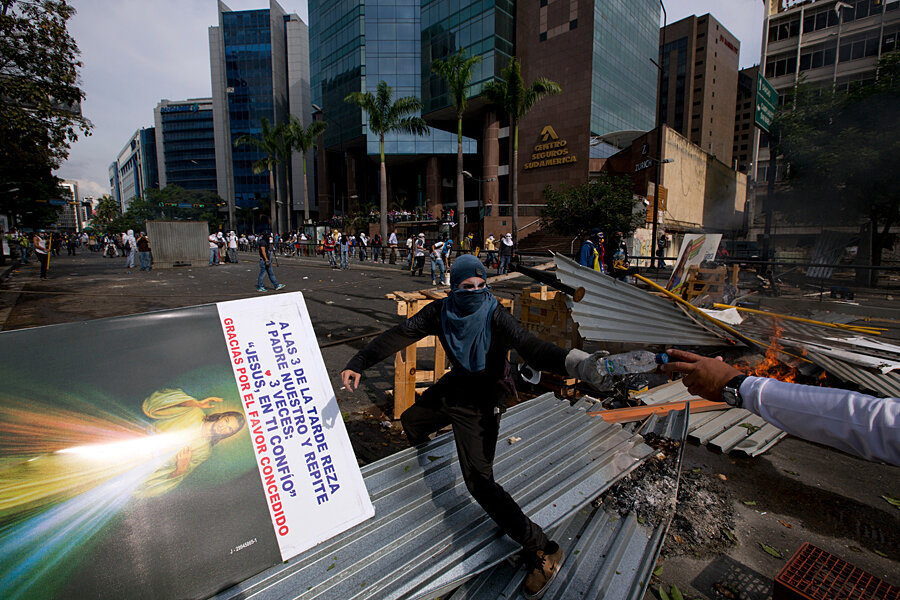Venezuela's Maduro tries to assert his control, but unrest simmers
In the past week, Venezuela has implemented a new currency exchange, recognized billions of dollars owed to foreign airlines, seized an opposition stronghold, and ousted an opposition congresswoman.
All the actions combine to fuel a narrative that the government of President Nicolás Maduro is gaining control of violent political unrest that has left at least 39 people dead over the past two months, says our correspondent in the capital of Caracas.
“All these things are designed more for signals abroad than domestically,” he says. “The government was denouncing the existence of a black market until weeks ago, and now [President Maduro] is talking about market forces and equilibrium. This new rhetoric came out of nowhere.”
The new currency exchange platform, called Sicad 2, was introduced March 24 and will allow people to buy and sell US dollars on something of a free-market basis. The government exchanged bolivars into US dollars last week on Sicad 2 at a rate of 51.86 to 1 – well above the official exchange rate of 6.3 bolivars to the US dollar, but still below the black market rate of 88 to 1, according to an explainer from The Financial Times.
The discrepancy between the official exchange rate and the black market rate underscores a problem in the government’s promise March 27 to repay about $3.8 billion it owes to international airlines including American Airlines, Luftansa, Delta, Air Canada, Avianca, and Copa. The airlines accumulated the debt at an exchange of 6.3 bolivars to the dollar, but if they’re now repaid on the Sicad 2 it would represent a near 80 percent haircut.
“The big problem with the whole exchange regime is that it’s one big black box,” says our correspondent. “It’s completely arbitrary as to what exchange rate you have access to.“
Meanwhile, student-led protests continue to roil the country, despite the government’s moves to silence dissenters and quell unrest. The military on Sunday cleared barricades from the western city of San Cristobal, the city that first launched the wave of antigovernment protests in early February. The next day ... For the rest of the story, continue reading at our new business publication Monitor Global Outlook.









